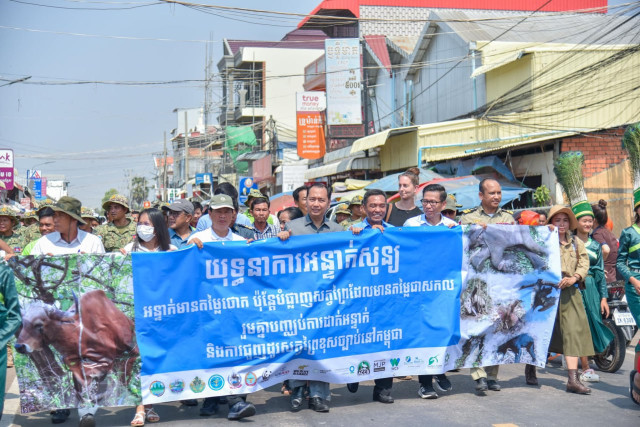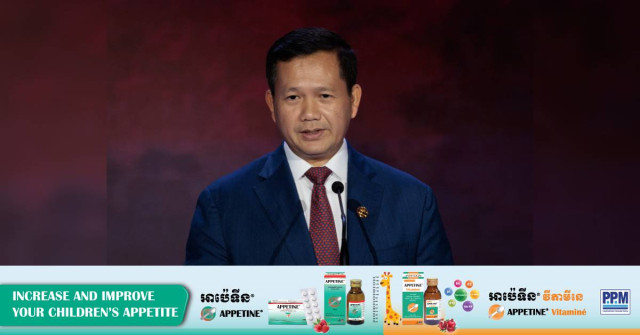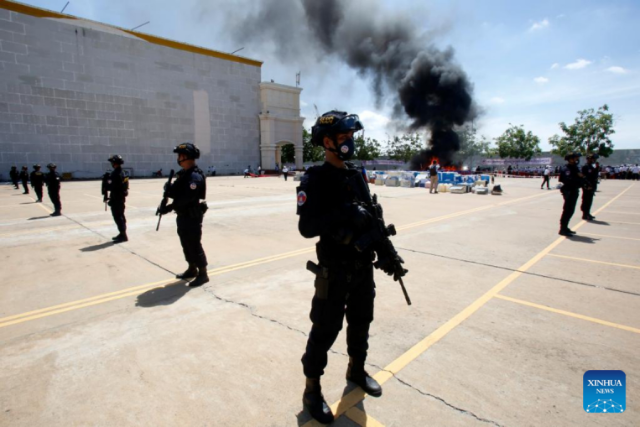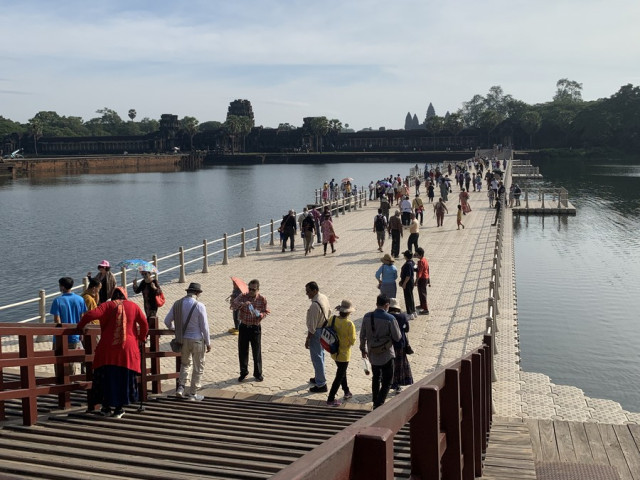The Ministry of Environment’s Zero-Snaring Campaign to Expand to the Country’s Southwest

- By Meng Seavmey
- April 9, 2023 3:00 PM
PHNOM PENH —The second phase of the Zero Snaring Campaign was launched in Pursat province on April 7, and will soon be conducted in the protected areas of four other provinces in an effort to remove illegal fish traps.
The Zero Snaring Campaign: Phase II will take place in the southwest of the country in Battambang, Kampong Speu, Koh Kong, Pailin and Siem Reap provinces, the Ministry of Environment said in a Facebook post on April 7.
Led by the ministry in cooperation the ministry’s provincial departments of environment as well as several wildlife protection and conservation organizations, the campaign was extended due to the success of the first phase that had been conducted in 2022 in Kampong Thom, Kratie, Mondulkiri, Preah Vihear, Ratanakiri and Stung Treng provinces, the post read.
The second phase of the campaign will focus on removing fishing traps illegally set up in protected areas in addition to several measures such as inspection and legislation being adopted regarding management, trap setting and dog patrols in the protected areas, the ministry said in the post.
Moreover, plans are to establish several law enforcement units in the provinces to monitor and combat illegal wildlife trafficking at markets and in specific areas in the provinces.
The Ministry of the Environment also plans to adopt and set up the public health prevention measures regarding wildlife trafficking, which were issued by the World Health Organization in April 2021, according to the Facebook post.
During the campaign, the ministry plans to appeal to the public to help put a stop to wildlife illegal trade by no longer eating wild animals, the post read, quoting ministry spokesperson Neth Pheaktra saying that the campaign reflects the public’s commitment to have illegal traps removed, cracking down on wildlife trafficking and creating jobs to support their communities’ economic development.
In the Facebook page, John Willis, country director of the Wildlife Alliance, is quoted as saying that trafficking perpetrators only benefit from killing wildlife, leaving behind negative impacts for the community, as well as affecting incomes from credit carbon, economic development projects and ecotourism in rural areas.
“Traps are like mines for wildlife: They are indiscriminate killers,” Willis is quoted as saying. “Traps have ruined business opportunities and the economy of the families who don’t even set the traps themselves.”
Seng Teak, country director of World Wildlife Fund Cambodia (WWF-Cambodia), said that WWF would work with the ministry and other partner organizations to spread awareness of the negative impacts of traps on natural resources.
There still are many wildlife species in Cambodia, with some of them considered extinct and others nearly extinct, said Kung Monichan, country director of the Maddox Jolie-Pitt (MJP) Foundation, according to the Facebook post. This campaign is crucial to protect the species remaining, he said.
According to the ministry’s report, the ministry removed 61,611 traps found in 72 protected areas in 2021, which was 20 percent more than in 2020. During the 2022 campaign, at least 34,000 traps were removed.















